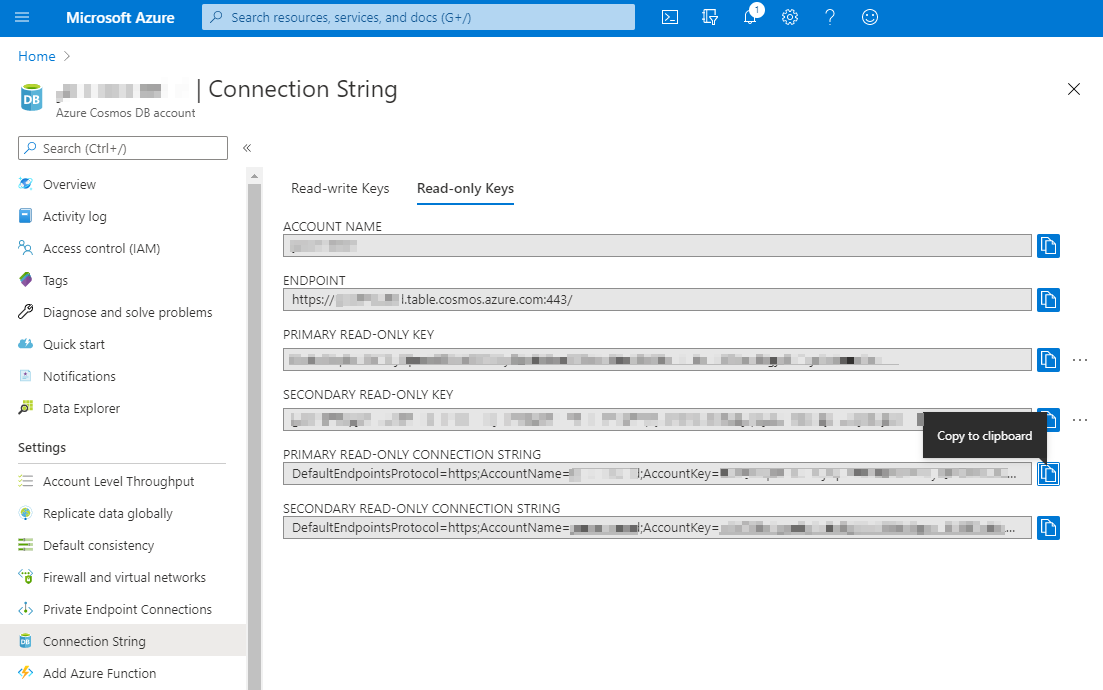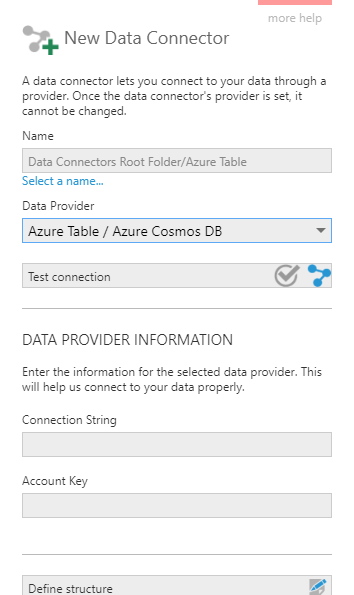Connecting to Azure Table / Azure Cosmos DB
This applies to: Managed Dashboards, Managed Reports
This article provides additional details on how you can connect to data stored in Microsoft Azure Table storage or Azure Cosmos DB tables.
When connecting to Azure Cosmos DB, accounts using the Azure Table API are supported.
![]() To connect to Azure SQL or Azure Synapse, use the Microsoft SQL Server data provider.
To connect to Azure SQL or Azure Synapse, use the Microsoft SQL Server data provider.
Main article:
See the following sections:
Azure Resource
Use the Azure Portal to set up your service resource. You will need either an Azure Storage resource or an Azure Cosmos DB resource set up that Symphony can access via its network/IP address.
You will need the connection string to access your resource to add a data connector for it in Managed Dashboards.
Azure Storage Tables
When creating an Azure Storage account, choose an account type such as "general purpose" that includes support for table storage. For a walkthrough, see Create an Azure Storage account.
The connection string is one of the Access Keys for the account, which you can find from the Azure Portal once the resource is set up, and you can copy it to the clipboard. For details, see Manage storage account access keys.
Azure Cosmos DB
When creating an Azure Cosmos DB account, use the Table API option by choosing Azure Table as the API. A tutorial is available that includes creating an account.
To connect to your resource, you can navigate to its Connection String settings in the Azure Portal. You can typically choose Read-only Keys and copy your connection string to the clipboard.

Data Connector Settings
Once you have your connection string as shown above, create a data connector and set Data Provider to Azure Table / Azure Cosmos DB.

Paste or type in your Connection String.
Connection strings copied from the Azure Portal typically already include the Account Key or access key, in which case you can leave this next field blank.
See Also
- Connect to data and view it on a dashboard
- Microsoft Docs: Introduction to Azure Cosmos DB: Table API
- Microsoft Docs: Introduction to Table storage in Azure